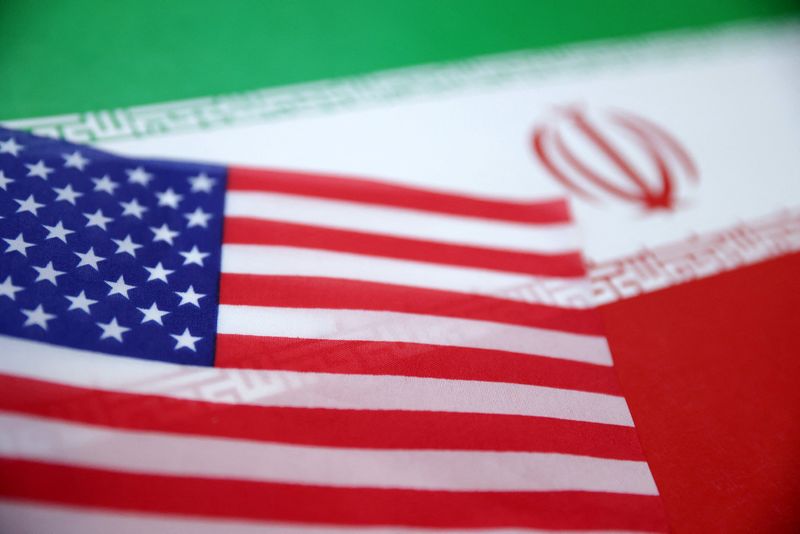By Phil Stewart and Idrees Ali
WASHINGTON (Reuters) -The United States believes Iran could carry out retaliatory attacks targeting American forces in the Middle East soon, although the U.S. is still seeking a diplomatic resolution that would see Tehran forgo any attack, two U.S. officials said on Monday.
One of the officials, who spoke to Reuters on condition of anonymity to discuss the assessment, said Iran’s retaliatory attack could happen within the next day or two.
Iran has threatened to retaliate after U.S. bombed its nuclear sites over the weekend.
U.S. officials have warned Iran against hitting back at the U.S. and President Donald Trump said after the strikes that any retaliation by Iran against the U.S. would be met with a force far greater than that used in the weekend U.S. attacks.
The chairman of the Joint Chiefs of Staff, General Dan Caine, said on Sunday that the U.S. military had increased protection of troops in the region, including in Iraq and Syria.
The United States has a sizeable force deployed to the Middle East, with nearly 40,000 troops in the region. Some of them operate air defense systems, fighter aircraft and warships that can detect and shoot down incoming enemy missiles but their positions are vulnerable to attack.
Reuters reported last week that the Pentagon had moved some aircraft and ships from bases in the Middle East that may be vulnerable to any potential Iranian attack. That included aircraft being removed from the 24-hectare Al Udeid Air Base, in the desert outside the capital Doha. It is Middle East’s largest U.S. base and houses around 10,000 troops.
Tehran has vowed to defend itself and retaliate.
But, perhaps in an effort to avert all-out war with the United States, it had yet to target U.S. bases or choke off a quarter of the world’s oil shipments that pass through its waters by closing the Strait of Hormuz.
(Reporting by Phil Stewart and Idrees Ali; Editing by Alistair Bell)
The post Exclusive-Iranian retaliation against U.S. forces could come soon, U.S. officials say appeared first on Reuters.



